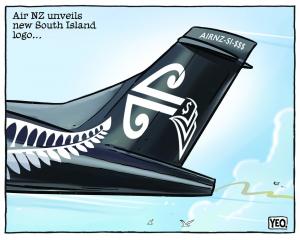
The unusual call from Sir Jerry, who usually remains strictly non-political, was backed by Prime Minister John Key as Government ministers increased the pressure on Ngapuhi to get on with its settlement in the lead-up to mark the 175th signing of the Treaty.
Mr Key says the Government will do its best to settle all outstanding Treaty of Waitangi claims by 2017. But there are some stumbling blocks.
Talks with Ngapuhi - the country's biggest iwi - over a settlement have been delayed, and there is conflict within the iwi over who has a mandate to negotiate a deal.
In his Waitangi Day speech last year, Mr Key said he hoped to have an agreement in principle with Ngapuhi signed by the end of 2014.
This did not happen, despite the best efforts of Treaty Negotiations Minister Chris Finlayson. When National came to power in 2008, it wanted all Treaty settlements completed by last year. That date has now been reset to 2017.
Mr Key says the Government will not write out a cheque for a particular iwi if the agree-ment is unfair relative to others.
He still hopes to achieve the 2017 target but will not compromise his position to achieve that goal if there is an iwi saying it is not prepared to come to the table.
Government ministers have, of late, tried to increase pressure on Ngapuhi leaders to sort out their long-running battle.
At the launch of the Northland Economic Development Strategy, Economic Development Minister Steven Joyce said the iwi was missing out on about $10 million for each year of delay.
That also meant Northland, a province in which Ngapuhi could be a significant investor, was missing out. Speaking in front of several hapu leaders, Mr Joyce sent a blunt message: ''Now is the time.''
Labour leader Andrew Little, meanwhile, says it is important progress continues to be made on treaty settlements - but also rightly points out that thought needs to be given to what happens once all settlements have been concluded. What happens next is vitally important.
In that sense, it is perhaps worth contrasting the situation with that of the South Island, where the spectacular success of Ngai Tahu in its business dealings has lifted its people into jobs and better standards of living.
Tourism is a focus for Ngai Tahu, and other areas such as fishing, property ownership and development rate highly.
It is hard now to imagine a South Island economy growing without the input of Ngai Tahu.
So, Mr Little is right in saying the future must be considered.
The reality is, unfortunately, that it will be a difficult - likely tortuous - debate to find even a semblance of agreement on the right course to be steered.
After all, New Zealand, sadly, seems no closer to being able to celebrate Waitangi Day in a manner one would expect to mark the founding of a nation.
It is a day which has instead become fraught with controversy, personal conflict and name-calling.
Today will likely be no exception. Mr Key will have already expected a rough welcome, and Sir Jerry has this week been criticised for urging a settlement of one of the country's largest claims.
But Sir Jerry, of Ngati Tuwharetoa and Ngati Kahungunu descent, in a measured way said only what many people were thinking.
The bitter standoff between the Tuhoronuku and Kotahitanga groups over the mandate to settle is baffling.
Sir Jerry has signed off settlements for his iwi in Hawkes Bay, and says his pen will not hesitate when the Government brings a Ngapuhi document to him.
Hopefully, Ngapuhi's leaders will soon sense the urgency of the nation for the Treaty process to reach a conclusion, settle their differences and allow for an agreement with the Crown to be reached.












